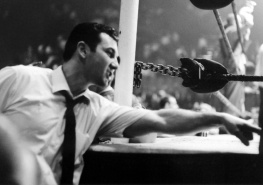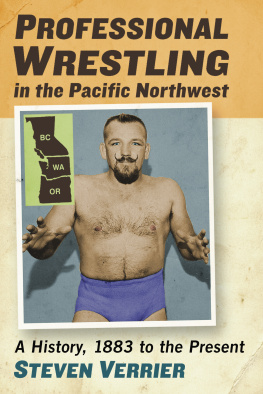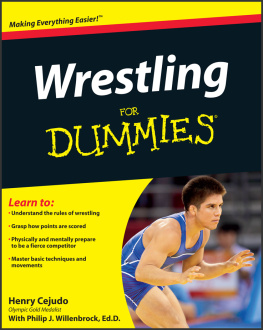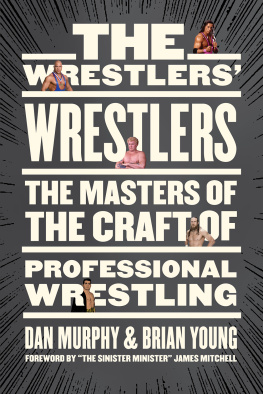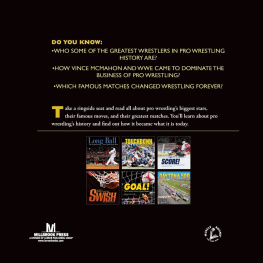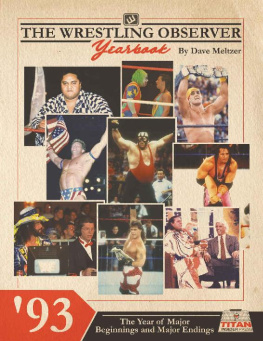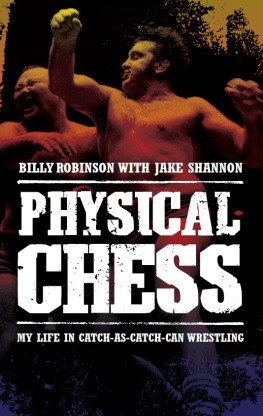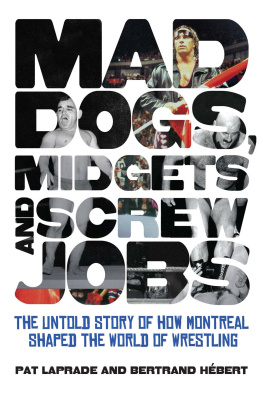NORTH COUNTRY SPORTS AND PASTIMES.
Wrestling and Wrestlers:
Biographical Sketches of Celebrated Athletes of the Northern Ring ;
TO WHICH IS ADDED
Notes on Bull and Badger Baiting.
BY
SIDNEY GILPIN.
Of all the athletic amusements of the people, Wrestling is beyond doubt the best. Christopher North.
LONDON: BEMROSE & SONS.
CARLISLE: THE WORDSWORTH PRESS,
75 Scotch Street .
MDCCCXCIII.
TO THE MEMORY
OF
JACOB ROBINSON,
THESE PAGES ARE
GRATEFULLY DEDICATED,
BY
HIS FELLOW-WORKER,
SIDNEY GILPIN.
PREFACE.
Every dale and valley, every nook and corner, throughout Cumberland, Westmorland, and North Lancashire, at all likely to yield materials, has been ransacked and laid under subservience in the compilation of this volume; and it now becomes the pleasant duty to record the fact, that not a single instance of unwillingness was met with, on the part of the multitude of narrators, who supplied the items of the various events chronicled.
The local newspaper files have materially aided our labours, in a variety of ways. Besides supplying many passing incidents, we have found them, in some instances, exceedingly useful in the way of verifying and correcting dates.
A brief description of Swiss Wrestling was promised, for the introductory chapter, by a native of that country resident in London. This promise yielded no fruit at the time, and it is a matter of regret that it still remains unfulfilled.
Of Wrestling in France, we have not been able to glean much information, although enquiries were set on foot through the columns of Notes and Queries and Bell's Life in London.
For much information contained in the article on Wrestling in Scotland, we are indebted to Mr. Walter Scott of Innerleithen; and for a few other items we have to thank Mr. Robert Murray of Hawick.
While the feats of many well known wrestlers are to be found in these pages, the names of others equally well known are necessarily omitted; but we may be able to publish a record of their achievements at some future time.
With a full consciousness of many imperfections, we now leave our work to the judgment of those impartial readers, who may honour it with a perusal.
Local Works on the Subject.
Wrestliana: an Historical Account of Ancient and Modern Wrestling. By William Litt. Whitehaven: R. Gibson, 1823.
Second Edition of the above, (reprinted from the "Whitehaven News,") by Michael and William Alsop, 1860.
Wrestliana: a Chronicle of the Cumberland and Westmorland Wrestlings in London, since the year 1824. By Walter Armstrong. London: Simpkin, Marshall & Co., 1870.
Famous Athletic Contests, Ancient and Modern, compiled by Members of the Cumberland and Westmorland Wrestling Society. (Reprinted from the Best Authorities.) London: F. A. Hancock, 1871.
Great Book of Wrestling References, giving about 2000 different Prizes, from 1838 to the present day. By Isaac Gate, Twenty-five Years Public Wrestling Judge. Carlisle: Steel Brothers, 1874.
CONTENTS.
Introduction : Page
Ancient Grecian Wrestling .
Wrestling in Japan .
Indian Wrestling .
Wrestling Match in Turkey .
Old English Wrestling .
Wrestling in Scotland .
Irish Wrestling .
Cumberland and Westmorland Wrestling
Melmerby Rounds
Langwathby Rounds
James Fawcett , Nenthead
William Richardson , Caldbeck
William Litt , Bowthorn
Miles and James Dixon , Grasmere
Rowland and John Long , Ambleside
Tom Nicholson , Threlkeld
William Mackereth , Cockermouth
Harry Graham , Brigham
James Scott , Canonbie
Robert Rowantree , Kingwater
William Dickinson , Alston
George Dennison , Penrith
James Robinson , Hackthorpe
Thomas Richardson , Hesket-New-Market
Tom Todd , Knarsdale
William Wilson , Ambleside
John Weightman , Hayton
John Mc.Laughlan , Dovenby
Bull Baiting
Badgers and Badger Baiting
Addenda
INTRODUCTION.
ANCIENT GRECIAN WRESTLING.
The ancient Grecians were passionately fond of festivals and games. In every particular State such institutions were occasionally celebrated for the amusement of the people; but these were far less interesting than the four public games frequented by multitudes from all the districts of Greece. The Pythian Games were celebrated at Delphi; the Isthmian at Corinth; the Neman at Nema in Argolis; and the Olympic at Olympia, near Elis. We propose to give a brief account of the Olympic games only, as being by far the most splendid, and in which victory was reputed to be the most honourable. The celebrity of these games was extended for many centuries after the extinction of Greek freedom, and their final abolition did not occur until after they had flourished for more than eleven hundred years.
The games were held in summer when the heat was excessive; and to add to the difficulty and fatigue experienced, the more violent exercises were performed in the afternoon, when even the spectators were scarcely able to remain exposed to the sun. To prevent the competition of such as were unskilful, the candidates were required to swear that for ten months before the commencement of the games they had made it their constant study to prepare for the contest; and during the last thirty days they were obliged to reside at Elis, and had to practise daily under the inspection of the judges. Hence, the permission to contend at Olympia was regarded as no inconsiderable honour, and served in some degree as a consolation to the vanquished.
Immediately before the commencement of the different exercises, a herald led every candidate separately through the assembly, and demanded if any one knew him to be a man of profligate character, or to have been guilty of any notorious crime. As numbers were present from every state in Greeceto some of whom each of the combatants was knownit rarely happened that any suspicious character chose to expose himself to such a scrutiny. The candidates were required to make a solemn declaration that they would not endeavour to gain the victory by bribing their adversaries, or by a violation of the laws regulating the different contests; and any person guilty of a breach of this promise was not merely deprived of the olive crown, but was fined by the judges, and could never after contend at the games. These regulations seem to have accomplished the purpose for which they were intended, since, during several hundred years, only five instances occurred in which any improper artifice was known to be employed by the competitors in the games.
Daikls, the Messenian, was the first who had the honour of being crowned with the simple wreath woven from the sacred olive-tree near Olympia, for his victory in the Stadium.
The Greeks held the exercise of Wrestling in high estimation, which, in point of antiquity, stood next to the foot race. The object of the wrestler was to throw his adversary to the ground: but it was not till this had been thrice repeated, that he obtained the victory. Like all who contended in the games, the Wrestlers were accustomed to rub their bodies with oil, partly to check the excessive perspiration occasioned by the heat and the violence of the exercises, and partly from an opinion that the oil gave the limbs a greater degree of pliancy and agility. As the smoothness occasioned by the oil would have prevented the combatants from grasping each other with firmness, it was customary for them, after being anointed, to roll themselves in the dust of the Stadium, or to be sprinkled with a fine sand kept for that purpose at Olympia. If in falling, one of the Wrestlers dragged his adversary along with him, the combat was continued on the ground, till one of the parties had forced the other to yield the victory.


